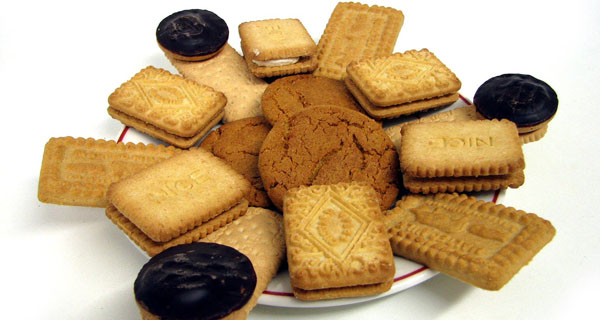
In Italy 80% of all biscuits are just eaten for breakfast, whereas in other European countries they are also treated as an on-the-go snack. Seeing as in Italy the first meal of the day is traditionally eaten at home – and ever more so in recent times, as in a bid to reduce their monthly spend, many Italians have given up going to a bar in the morning to get the classic cappucino and cornetto – benefitting from this are the more classic products, predominantly the frollini for example, a type of shortbread, which in fact according to data from Nielsen MarketTrack, has risen by 3.2% in sales value and by 2.8% in overall value throughout the course of 2014, meaning a total of over 286 thousand tons in weight worth 1,051 million euros.
Even though the traditional dry biscuits aren’t going to leave the Italian’s cupboards any day soon, the higher-end biscuits are gaining appreciation in the market, predominantly those enriched with chocolate, and those marketed as “healthy”, for example the cereal and fibre based biscuits, sugar free ones and those low in fat, even gluten-free and yeast-free biscuits, which are improving in terms of taste and variety and are already being bought more often by consumers who aren’t even gluten intolerant.
Even the organic biscuits are steaming ahead. Alce Nero, which is among the pioneers in this sector in Italy, is now focusing on offering biscuits for the “early years” market with the launch of a shortbread made from spelt flour, sweetened only with malt barley extract and rice syrup. “These are spelt biscuits certified as ‘organic food for children under Presidential Decree 128 of the 9th April, 1999′”, explains Alida Sangiorgi, product marketing manager for Alce Nero, “this being the Italian legislation which regulates products aimed at children from birth to three years of age. The use of palm oil in these biscuits has been eliminated and the level of sweetness has been reduced, as for all our other biscuits too, in order to get babies used to appreciating products which aren’t excessively high in sugar.”
In a market which makes wide use of promotional incentives the competition remains high. “Innovation and communication”, comments Paolo Isolati, marketing director for Gruppo Bauli, “are the factors with which a company’s brand can and must compete. Gruppo Bauli has increased its own adv spending by 40% on the previous year in order to promote its own products and the made in Italy brands: Bauli, Motta, Doria, Bistefani and Alemagna.”
